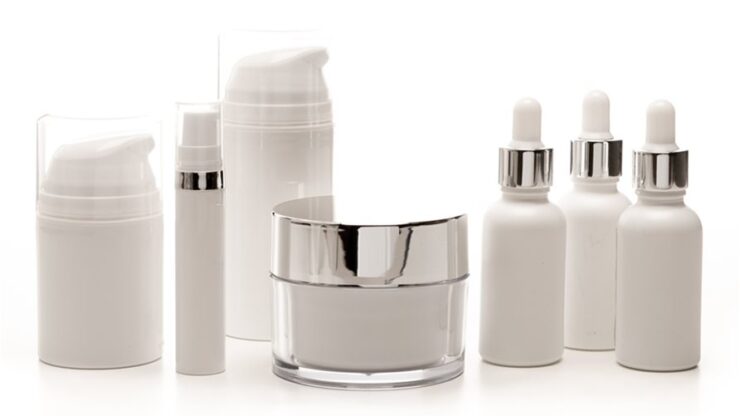The skincare industry is booming, with consumers increasingly seeking effective solutions to their daily skincare concerns. Among the many trends shaping the landscape, private label medical-grade skincare has emerged as a game-changer. Combining the potency of professional-grade formulations with the convenience of customized branding, private label skincare provides a unique opportunity for businesses to create tailored solutions for their customers. This article dives into the significance of private label medical-grade skincare, explores the importance of skincare packaging, and answers the often-asked question, “What skincare should be refrigerated?”
What is Private Label Medical Grade Skin Care?
Private label medical-grade skincare refers to professional formulations offered by manufacturers that allow businesses to rebrand these products under their own names. These products typically contain high concentrations of active ingredients known for their efficacy, such as retinol, peptides, and hyaluronic acid. Private label solutions provide a range of benefits, especially for dermatologists, spas, beauty brands, and entrepreneurs looking to bring their high-performance skincare lines to market without developing their own formulas from scratch.
Why Private Label Medical Grade Skin Care is Popular
- Customization Options
Private labeling allows businesses to curate unique products with branding, skincare packaging, and formulations tailored to their customer base. This personalization strengthens brand recognition and customer trust.
- Medical-Grade Benefits
Unlike over-the-counter skincare, medical-grade products have been rigorously tested and feature concentrated ingredients proven to deliver noticeable results. These products offer a clinical edge that consumers can’t find in standard retail options.
- Cost-Effective Opportunity (Without R&D)
Formulating a new skincare product requires investments in research, development, and testing. With private labeling, businesses can skip these intensive steps and bring a tried-and-tested product to market much faster.
- Scalable Business Growth
By leveraging private label medical grade skin care, brands can scale their businesses without being bogged down by manufacturing challenges. This allows companies to focus on product marketing, customer service, and business expansion effortlessly.
The Importance of Skincare Packaging
While private label formulations drive product efficacy, skincare packaging plays a vital role in establishing a product’s appeal and maintaining its effectiveness. High-quality packaging doesn’t just attract attention on shelves; it also ensures the product remains stable and functional.
1. Appearance Matters
Packaging shapes the first impression of any product. Whether customers are browsing in stores or scrolling through online shops, your skincare brand’s package design determines whether a customer stops to take a second look. Elegant, understated designs are particularly common in private label medical-grade skincare to reflect the product’s clinical and professional quality.
2. Protecting Active Ingredients
For medical-grade skincare, proper packaging isn’t just about aesthetics; it’s also about preserving the effectiveness of active ingredients. Ingredients like retinol and Vitamin C are sensitive to light and oxygen exposure, necessitating packaging that minimizes degradation.
Common Packaging Solutions:
- Airless Pumps: These prevent air contamination, keeping active ingredients such as peptides and antioxidants fresh for longer.
- UV-Protective Bottles: For light-sensitive products, these opaque or tinted containers shield the contents from UV rays.
- Temperature-Sensitive Packaging: For products that need refrigeration, such as some Vitamin C serums, gel-based moisturizers, and probiotic treatments, temperature-resistant packaging is key to maintaining integrity during transport and storage.
3. Eco-Friendly Innovations
Consumers today expect sustainability as part of the skincare experience. Biodegradable or recyclable materials and refillable systems are gaining traction in medical-grade skincare, aligning with eco-conscious customer preferences. Investing in sustainable packaging can elevate the perception of your brand while minimizing environmental impact.
What Skincare Should Be Refrigerated?
A growing question among skincare enthusiasts surrounds product storage. Refrigerating certain skincare products can extend their shelf life, enhance their efficacy, and provide a soothing cooling sensation when applied. However, not all skincare formulas benefit from refrigeration. Knowing which products need a spot in your beauty fridge can help you elevate your skincare routine.
Products That Should Be Refrigerated
- Vitamin C Serums:
Vitamin C is highly prone to oxidation when exposed to light, air, and heat. Keeping it refrigerated slows the degradation process, maintaining its potency for longer.
- Probiotic Skincare:
Products infused with probiotics (commonly found in medical-grade moisturizers or serums) often have active cultures that are temperature-sensitive. A cool environment keeps these ingredients active.
- Gel-Based Moisturizers & Masks:
Refrigeration enhances the calming properties of gel products, making them particularly effective for soothing irritated or sunburned skin.
- Eye Creams & Rollers:
A chilled eye cream or roller can help de-puff under-eye areas more effectively while leaving a cooling sensation that feels extra refreshing.
- Sheet Masks & Mist Sprays:
Cooling down sheet masks and facial sprays amps up their skin-soothing abilities, making them even more relaxing and effective for reducing inflammation.
Products Best Kept at Room Temperature
It’s important to note that not every skincare product should be stored in the fridge. Freezing certain formulas can disrupt their stability and overall effectiveness.
- Oil-Based Products: Oils and oil-based serums can solidify and lose their texture in colder temperatures.
- Thick Creams: Many medical-grade creams have ingredients that bind well at room temperature but risk separation when refrigerated.
Always check the manufacturer’s storage instructions on the packaging before deciding where a product belongs.
Harnessing the Power of Private Labeling
For those ready to launch a private label medical-grade skincare brand, partnering with a trusted manufacturer is essential. By selecting the right private label partner, you can access a library of high-end formulations supported by professional-grade packaging to protect your brand’s integrity. At the same time, emphasizing premium skincare packaging and educating your customers on practices like refrigerating skincare when necessary can build trust and loyalty within your audience base.
Wrapping Up
The demand for effective skincare solutions continues to grow, and private label medical-grade skincare is perfectly positioned to meet that demand. By offering expertly curated, high-performance products packaged for both design and preservation, brands can earn loyal customers in a crowded market. Likewise, incorporating small daily lessons (like insights into which skincare products should be refrigerated) establishes your authority as a credible player in the skincare industry.

